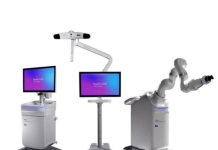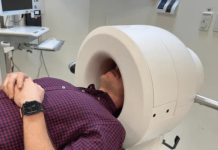SoniVie announced today that it treated the last patient in a pilot study of its Tivus technology for renal artery denervation to treat hypertension.
Tel Aviv, Israel-based SoniVie develops Tivus (therapeutic intra-vascular ultrasound) to treat a variety of hypertensive disorders. It’s conducting the REDUCED-1 FDA investigational device exemption study to evaluate the renal denervation technology.
Related: App designed to track macular degeneration triumphs in clinical trial
The company says the last patient in the trial received treatment with Tivus on Jan. 8.
REDUCED-1 features two enrolment cohorts conducted under an identical protocol in the U.S. and Israel. It enroled 25 patients in the U.S. and 15 in Israel. All patients are now in the follow-up phase measuring primary efficacy (change in daytime systolic ambulatory blood pressure) at three months. The study also looks at safety at one month and 12 months follow-up.
Tivus, a minimally invasive procedure uses high-frequency, non-focused ultrasound energy to ablate nerves in the renal arteries. This causes a reduction in nerve activity, which could decrease blood pressure.
“Our next commitment towards patients, physicians and regulators is now to clinically validate the Tivus system in a global pivotal trial and expand its use under the pivotal study with radial access procedures,” said Tomaso Zambelli, CEO of SoniVie.
Renal denervation has become a hot topic in medtech, particularly over the past several months.
Recor Medical won landmark FDA approval for its Paradise ultrasound renal denervation technology in November. Approval allows for the use of Paradise as an adjunctive treatment option when lifestyle changes and medications fail to control a patient’s blood pressure adequately.
The company edged out Medtronic in the race to offer the first FDA-approved RDN system that treats hypertension. Medtronic picked up approval for its Symplicity Spyral system within weeks of Recor’s regulatory nod.




